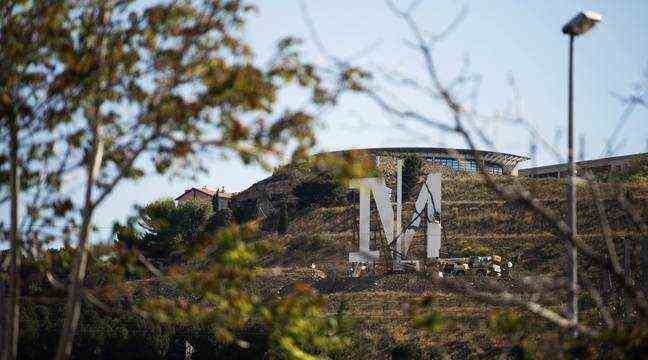Marseille on the red carpet of the Cannes Film Festival. Three films shot in Marseille are in the running or presented this year: North Bac by Cédric Jimenez and Stillwater by Tom McCarthy are presented out of competition, in the Un Certain Regard category we find Good mother by Hafsia Herzi. In these three feature films, one of the characters goes through the prison break. An image that sticks to the city in the cinema, which regrets Katharina Bellan, specialist in the history of cinema in Marseille who publishes in September Traces of Marseille in the cinema, history, memory and topography of a city. Stillwater however addresses “the theme of homosexuality, which had not been addressed in Marseille cinema”.
Between Pagnol, the underworld and the social aspect, can we note an evolution of the image of the city of Marseille in the cinema and what to say about the films presented in Cannes?
To tell the truth, these three different facets of Marseilles – Pagnol, thug, proletariat – have coexisted at all times. And the three films coming out at the Cannes Film Festival are a good example: Good mother, by Hafsia Herzi, is the story of “people of little”, according to the expression of René Allio, Marseille filmmaker of popular, Italian origin. Robert Guédiguian has also spoken a lot about the popular classes, but never on the side of Maghreb immigration as Hafsia Herzi does. North Bac, that’s the rogue side. Cédric Jimenez has already worked on this theme with French (2014), which is part of a lineage of films on the mafia and gangsters. Borsalino (1970), for example, with Jean-Paul Belmondo and Alain Delon, that’s completely it.
And where to place “Stillwater”?
Stillwater is more at the forefront of current sociological transformations. With Matt Damon who comes to look for his daughter who fell in love with a young woman of North African origin, we are dealing with the theme of homosexuality, which had not been addressed in Marseille cinema.
What are the difficulties of filming Marseille? There is the question of accent for example, the cliché of delinquency …
If the accent is not a criterion of success, it can on the other hand do something frankly failed, like the series Marseilles of Netflix with Depardieu. The danger is rather the appalling determinism that is stuck to the youth of Marseille. And there, the three films presented pass or end in prison… It is also one of the reproaches which I make to Scheherazade (2018), by Jean-Bernard Marlin, who begins and ends in prison. There is no future for these young people? What is this way of looking at this youth from the neighborhoods like savages? While they are beautiful, full of energy and we want to film them.
Describing a desirable future for Marseille youth would therefore be a blind spot for filming Marseille?
Yes. The blind spot is to show this youth outside of what it is outlawed or dangerous, to show its creative energy. But unfortunately, ending young Marseilles in prison or dead is nothing new. Strictly speaking, in Like a magnet, Akhenaton’s film, there is death but not prison. It’s more tragic but less deterministic. Does this show that society wants jail for these young people? In any case the filmmakers do not denounce it.
With three films presented at Cannes this year, including an American production, can we speak of a new attraction in Marseille for filmmakers?
Marseille has always been filmed a lot. It is a relatively dense city in its center, with a feverish youth, a very strong element of attraction of Marseille. The other determining factor of why Marseille is filmed is its topography. The port side, cosmopolitan is a criterion that attracts filmmakers, especially Americans. What makes Marseille an American city is its melting pot, the future of humanity. Marseille is not old France, it is America. In its urban form too: the highways reach into the city center, and that’s very American. The cities are also incredibly more photogenic than those of Seine-Saint-Denis because they overlook an extraordinary panorama.
Isn’t it a trap to aestheticize social misery?
Once again, determinism is the danger. It is to assign a category of population to a certain type of destiny. To aestheticize social misery, to make common people look beautiful, so much the better. But why do all these journeys of characters filmed in Marseille go through the prison box? It’s striking in these three trailers… I think we freeze the city a bit in a Neapolitan caricature, but that’s not true. But this is nothing new. I wonder why filmmakers don’t want to go beyond this cliché? They do not have the will in any case, and in the end Marseille becomes the systematic setting for the stories of delinquents, while in terms of figures, it is not worse than elsewhere …

